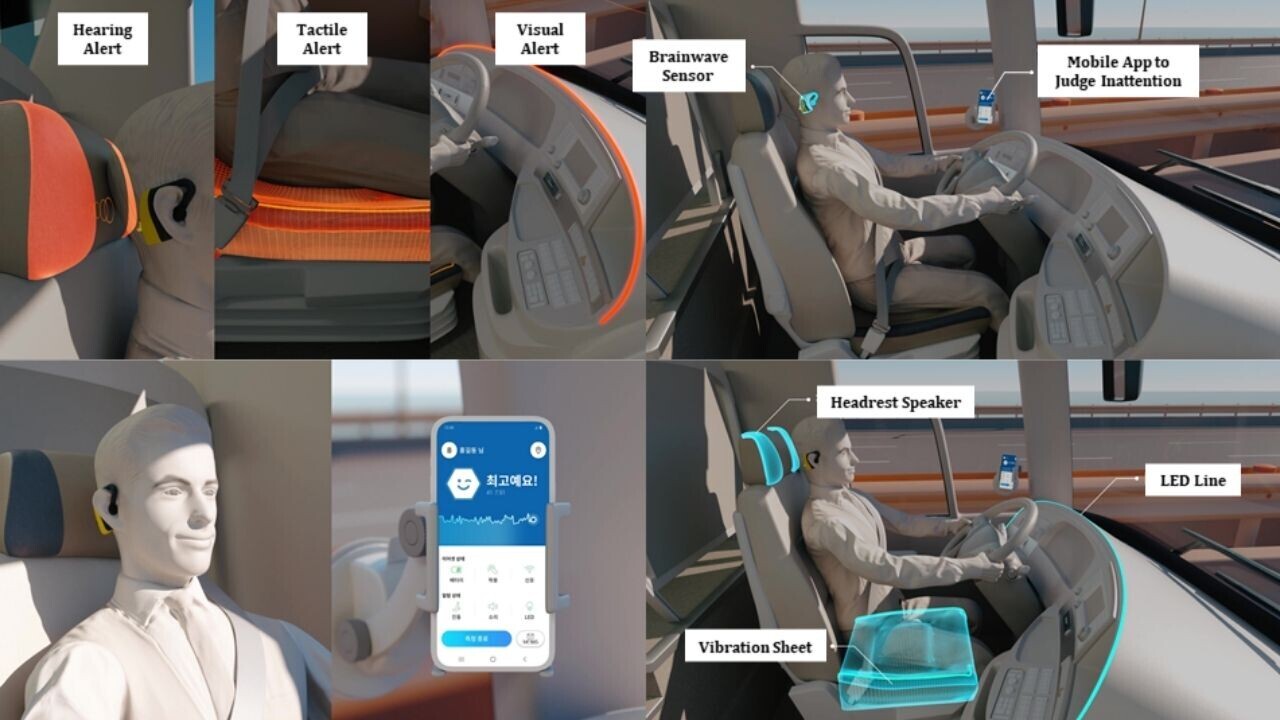
This article was originally published by Christopher Carey on Cities Today, the leading news platform on urban mobility and innovation, reaching an international audience of city leaders. For the latest updates, follow Cities Today on Twitter, Facebook, LinkedIn, Instagram, and YouTube, or sign up for Cities Today News.
The South Korean province of Gyeonggi is trialling an alert system that monitors bus drivers’ brainwaves in a bid to reduce accidents and improve safety.
The sensors — developed by Hyundai Mobis — will be placed in drivers’ ears and analyse their focus, fatigue and stress levels in real-time.
Drivers will receive “visual, auditory, and tactile alerts” if they are deemed to be driving carelessly or are drowsy.
Speaking to Cities Today, Chang-hee Cho, Bus Policy Division Manager, Gyeonggi Provincial Government, said: “For the first pilot operation, we will only test drivers who volunteer to participate.
“After this, we will conduct a survey of bus drivers who participated in the test and hear diverse voices from experts and those involved to decide whether to make further expansions.”
A total of 20 bus drivers on 10 public buses in Gyeonggi will participate in the trial, which runs until the end of this year.
Safer bus campaign
The move is part of the province’s ‘Safer Public Bus’ campaign which aims to eliminate driver stress and drowsiness, as well as the number of accidents involving buses.
Drivers will receive alerts through multiple channels, including LEDs around their seats, smartphone notifications, and seat vibrations.
When asked if beeping noises and alerts on smartphones could prove even more distracting for drivers, Cho said the trial will be regularly reviewed and amended if necessary.
“Hyundai Mobis has studied related research papers to develop and test the device. They will adjust and fix it if they discover any problems including possible obstacles to the drivers during the pilot operation.
“Accidents occur many times because of drivers’ drowsiness, stress, or careless driving when they are behind the wheel.”
“This ear-set sensor will help reduce the possibility of accidents if the driver is stressed or tired, and contribute to making driving safer.”
The Safer Public Bus campaign will also see the creation of rest areas for bus drivers, the reorganisation of long-distance bus routes, and the strengthening of operator compliance with legally guaranteed working hours and break times.
The trial will initially run on buses operating between the provincial capital Suwon and Seoul and may be extended if successful.
Get the TNW newsletter
Get the most important tech news in your inbox each week.





